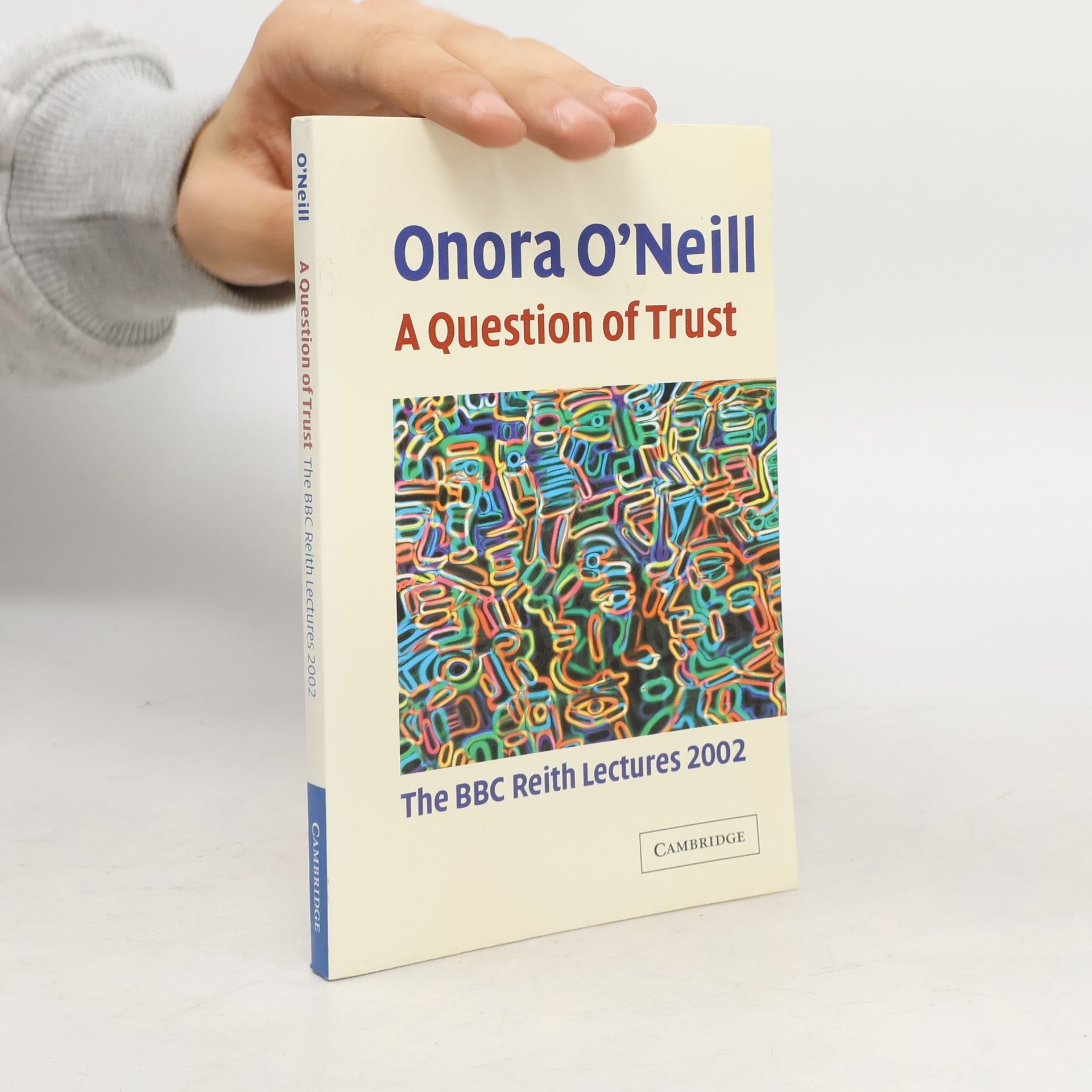A Question of Trust
- 108 Seiten
- 4 Lesestunden
In this 2002 book, Onora O'Neill investigates sources of deception in our society and re-examines questions of press freedom.
Onora O'Neill ist eine angesehene Philosophin, die sich in ihrer Arbeit den komplexen Bereichen der Ethik und politischen Philosophie widmet. Ihre Essays untersuchen sorgfältig tiefgreifende Fragen zu Gerechtigkeit, Rechenschaftspflicht und Menschenrechten. Bekannt für ihre strenge Argumentation, besitzt O'Neill die bemerkenswerte Fähigkeit, komplexe Konzepte einem breiteren Publikum zugänglich zu machen. Ihre einflussreichen Schriften prägen weiterhin die zeitgenössische Diskussion über Moral und gesellschaftliche Strukturen.



In this 2002 book, Onora O'Neill investigates sources of deception in our society and re-examines questions of press freedom.
Onora O'Neill shows how digital technologies have raised new ethical issues for communication, and argues that ethical communication requires broad attention, not only to rights of freedom of expression, but also to the agency, duties and needs of audiences.
OKIEM FILOZOFA KOMUNIKACJA CYFROWA Technologie cyfrowe spowodowały znaczące zmiany w zakresie komunikacji. Stworzyły nowe możliwości, ale jednocześnie stały się źródłem wielu istotnych problemów. Z jednej strony nowe technologie umożliwiają nam komunikację z ludźmi na całym świecie, pozwalają docierać do określonych grup odbiorców, a także zwiększać zasięg przekazywanych przez nas treści. Z drugiej strony coraz trudniej jest nam ocenić, czy informacje, które do nas trafiają, są sprawdzone i wiarygodne. W książce Okiem filozofa. Komunikacja cyfrowa brytyjska filozofka, Onora O’Neill, analizuje wyzwania, przed którymi stają odbiorcy w obliczu rozwoju komunikacji cyfrowej, a także wskazuje na najważniejsze problemy etyczne związane z wykorzystywaniem nowych technologii do komunikowania się z innymi ludźmi. Okiem filozofa. Komunikacja cyfrowa to wnikliwe spojrzenie na kwestie dotyczące komunikacji, które daje nową perspektywę i skłania do refleksji. W każdym tomie z serii Okiem filozofa powszechnie uznani myśliciele prezentują osobistą refleksję na tematy, z którymi spotykamy się w codziennym życiu. Onora O’Neill – nosi tytuł Honorary Professor Emeritus na Uniwersytecie w Cambridge i zasiada w ławie posłów niezależnych Izby Lordów. Jest autorką licznych książek na temat Immanuela Kanta, etyki i filozofii polityki, między innymi Justice Across Boundaries (2016).